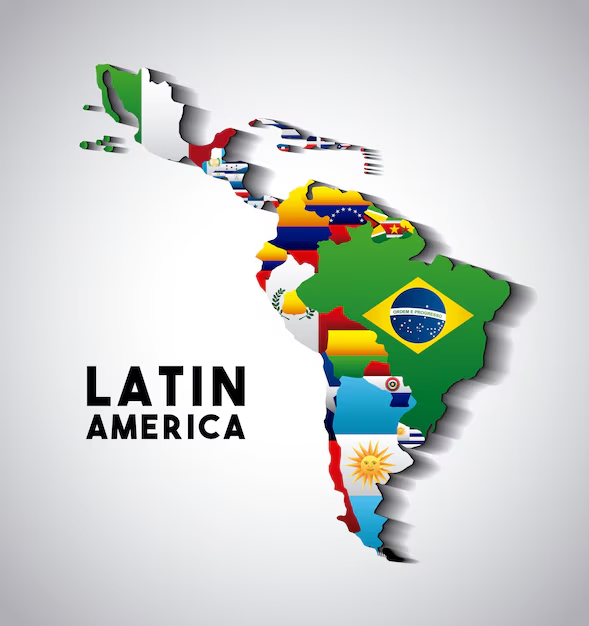South America's Territorial Disputes: Charting a Course Towards Peaceful Resolution
South America, a continent rich in cultural diversity and history, grapples with persistent territorial disputes. These conflicts, deeply rooted in colonial legacies, post-independence power struggles, and historical events, have long challenged regional stability. However, recent diplomatic advancements offer a pathway towards resolving these disputes and fostering unprecedented regional cooperation. This article examines the lessons learned from past efforts, explores current strategies, and considers the future prospects for a more unified and peaceful South America.
Delving into the Historical Context: Effectively addressing South America's territorial disputes necessitates a thorough understanding of their complex historical origins. Colonial boundary demarcation, post-independence power dynamics, and the evolution of national identities are all crucial factors in shaping these conflicts. Ignoring this historical context risks hindering progress towards lasting and equitable resolutions, perpetuating misunderstandings, and impeding genuine reconciliation.
The Crucial Role of Dialogue and Negotiation: Modern diplomatic approaches in South America emphasize the indispensable role of open communication and negotiation. Establishing and maintaining robust channels of dialogue cultivates mutual understanding and creates an environment conducive to compromise and peaceful resolutions. This collaborative approach prioritizes diplomacy over confrontation, recognizing that sustainable peace requires the commitment of all involved parties.
Learning from Past Successes and Failures: South America has witnessed instances of successful diplomatic resolutions, such as the Beagle Channel dispute between Chile and Argentina. Analyzing these successes provides invaluable insights into effective strategies and methodologies for future negotiations. Simultaneously, a candid assessment of past failures is equally crucial, identifying obstacles and shortcomings to avoid repeating past mistakes. This iterative process of learning and adaptation is vital for enhancing diplomatic effectiveness and achieving lasting peace.
Harnessing the Power of Regional Organizations and International Law: Regional organizations like the Organization of American States (OAS) play a pivotal mediating role, facilitating dialogue and promoting cooperation among South American nations. Strengthening these organizations enhances their capacity to support diplomatic initiatives and advance regional unity. Concurrently, adhering to international law provides a critical framework for just and legitimate conflict resolution, ensuring that all actions align with established legal principles and treaties.
Mediation, Confidence-Building, and Addressing Underlying Issues: Impartial mediation by regional leaders can be instrumental in guiding nations towards mutually acceptable solutions and peaceful settlements. Implementing confidence-building measures, such as joint economic projects or cultural exchange programs, is equally crucial in fostering positive relationships and reducing tensions. Furthermore, addressing the underlying socioeconomic inequalities or cross-border criminal activities that often exacerbate territorial disputes is essential for achieving comprehensive and sustainable solutions.
Expanding Participation for Inclusive Solutions: Effective diplomacy demands a multifaceted approach. Involving civil society organizations, academic institutions, and grassroots movements introduces diverse perspectives and fosters a shared sense of responsibility. Engaging youth is also paramount, ensuring future leaders are equipped with the necessary skills and understanding to build and maintain lasting peace. This broad-based approach guarantees that resolutions are representative and sustainable.
Economic Integration and Cultural Exchange as Catalysts for Peace: Initiatives that promote economic integration, like the Union of South American Nations (UNASUR) or the Pacific Alliance, act as powerful catalysts for cooperation and peaceful conflict resolution. Focusing on shared economic goals helps nations find common ground and mitigate tensions. Similarly, promoting cultural exchanges, tourism, and educational programs breaks down barriers and fosters mutual understanding and empathy.
Investing in Conflict Resolution Expertise: Diplomacy and conflict resolution are valuable skills requiring substantial investment and development. Governments, civil society organizations, and educational institutions must invest in training and education programs to enhance the continent's capacity to effectively address territorial disputes. This includes cultivating a culture of peace through education, media, and public awareness campaigns, emphasizing values of tolerance, understanding, and dialogue.
Conclusion: A Shared Vision for a Unified South America
Recent diplomatic progress in South America offers a beacon of hope for resolving territorial disputes and fostering a more unified and peaceful continent. By adopting a comprehensive approach that incorporates historical understanding, open dialogue, robust legal frameworks, and broad stakeholder engagement, South America can build a future characterized by cooperation and harmony. The journey towards lasting peace necessitates ongoing commitment, investment in conflict resolution expertise, and a shared vision of a united and prosperous future for all.



